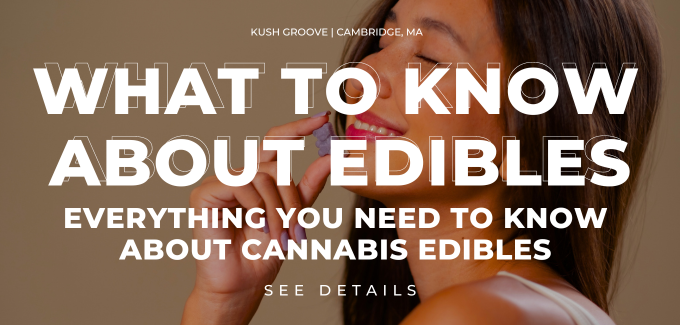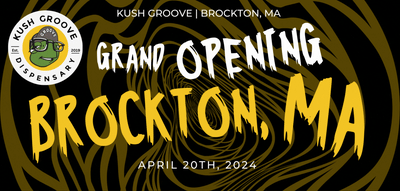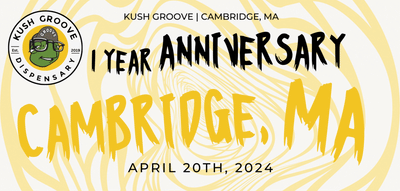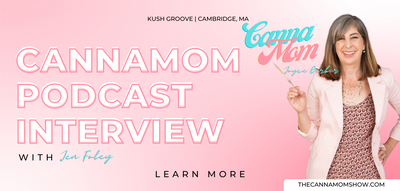Cannabis edibles have undergone a transformative evolution, emerging as a popular and innovative way to consume cannabis. Gone are the days of simple brownies; today's cannabis-infused edibles encompass a diverse array of delectable treats and beverages, offering medical relief and recreational enjoyment.
From gummies like camino edible gummies and chocolates to beverages and savory snacks, the world of cannabis edibles is a culinary adventure waiting to be explored.
In this article, we dive into what to know about edibles: their origins, consumption methods, dosing, effects, and essential safety considerations. Whether you're a seasoned cannabis connoisseur or a newcomer curious about this flavorful world, this guide will navigate you through the delectable realm of cannabis-infused treats and provide a solid foundation for your journey.
What are Cannabis Edibles?
Cannabis edibles refer to food and beverages infused with cannabis compounds, primarily THC (tetrahydrocannabinol) and CBD (cannabidiol). Unlike traditional methods of cannabis consumption, such as smoking marijuana or vaping, edibles offer an alternative way to experience the effects of cannabis. Edibles come in various forms, including gummies, chocolates, cookies, brownies, beverages, and even savory snacks, allowing users to enjoy cannabis discreetly and in a more palatable manner.
What Happens When You Eat Edibles?

When you consume cannabis edibles, the experience differs significantly from smoking or vaping. Here's what happens when you eat edibles:
- Digestion and Metabolism: After ingestion, marijuana edibles must go through the digestive system before their effects are felt. The cannabinoids are absorbed into the bloodstream through the gastrointestinal tract and metabolized by the liver.
- Delayed Onset: Unlike smoking or vaping, which produce almost immediate effects, edibles have a delayed onset. It can take anywhere from 30 minutes to 2 hours or more for the effects to kick in. This delay often leads some users to consume more, thinking the initial dose was ineffective, which can result in overconsumption.
- Longer Duration: Once the effects begin, they last longer than those from inhalation methods. Edible highs can persist for 4 to 8 hours or even longer, depending on factors like dosage and individual metabolism.
- Variable Intensity: The intensity of the edible experience varies from person to person and can be influenced by factors like tolerance, metabolism, and the specific edible product's potency.
- Body and Mind Effects: Cannabis edibles can produce both physical and psychological effects. Common physical effects include relaxation, increased appetite, and potential sedation. Psychological effects may include euphoria, altered perception of time, and heightened sensory experiences. The ratio of THC to CBD and individual tolerance can influence these effects.
- Potential Side Effects: Some users may experience adverse effects such as anxiety, paranoia, dry mouth, or impaired coordination when consuming edibles, especially if they take a high dose or have low tolerance.
What’s the Difference Between CBD and THC Edibles?
CBD (cannabidiol) and THC (tetrahydrocannabinol) are two of the primary cannabinoids found in cannabis, and they play distinct roles in the effects of cannabis edibles:
- Psychoactivity:
- THC Edibles: THC is the psychoactive compound responsible for the "high" associated with cannabis. THC edibles can produce euphoria, altered perception, and psychotropic effects.
- CBD Edibles: CBD is non-psychoactive and does not produce a high. CBD edibles primarily offer potential therapeutic benefits, such as pain relief, anxiety reduction, and anti-inflammatory effects, without the intoxicating effects of THC.
- Legality:
- THC Edibles: The legality of how much THC edibles vary by location. In areas where recreational or medical cannabis is legal, THC edibles are available through regulated dispensaries. However, they are illegal in many places.
- CBD Edibles: CBD derived from hemp (containing less than 0.3% THC) is federally legal in the United States and many other countries. CBD edibles from hemp are widely available and can be purchased online or in stores.
- Usage and Effects:
- THC Edibles: Typically used for recreational purposes, THC edibles offer a range of psychotropic effects. They can be consumed for relaxation, stress relief, and enhanced mood.
- CBD Edibles: CBD edibles are often used for medicinal purposes. They may help alleviate symptoms of chronic pain, anxiety, epilepsy, and insomnia. CBD edibles provide therapeutic effects without the high associated with THC.
- Dosing and Potency:
- THC Edibles: THC edibles come in various potencies, and dosing can significantly impact the intensity of the high. Users should exercise caution to avoid overconsumption.
- CBD Edibles: CBD edibles also come in various potencies but do not produce intoxicating effects, even in high doses. Users can experiment with dosages to find the best level for their needs.
- Side Effects:
- THC Edibles: Users of THC edibles may experience side effects such as anxiety, paranoia, dry mouth, impaired coordination, and increased heart rate, particularly if they consume too much.
- CBD Edibles: CBD edibles are generally well-tolerated, with few reported side effects. However, in high doses, some users may experience mild effects like drowsiness or gastrointestinal discomfort.
What are the Benefits of Eating Edibles?

Cannabis edibles offer a range of potential benefits, making them a popular choice for medical and recreational cannabis users which you can easily get from dispensary in Cambridge, MA. Here are some of the key advantages of consuming edibles:
Pain Relief
One of the most notable benefits of edibles is their potential to provide effective pain relief. THC and CBD, two primary cannabinoids in cannabis, have analgesic properties. Edibles can be particularly helpful for individuals with chronic pain conditions, such as arthritis, neuropathy, and musculoskeletal pain.
Decreased Inflammation
Cannabis compounds, especially CBD, are known for their anti-inflammatory properties. Edibles infused with CBD may help reduce inflammation in conditions like arthritis, inflammatory bowel disease, and various autoimmune disorders.
Anti-Seizure
CBD, in particular, has gained recognition for its potential to reduce the frequency and severity of seizures in individuals with epilepsy. When used as part of a comprehensive treatment plan, CBD-infused edibles may offer relief to those with epilepsy or other seizure disorders.
Stronger, Long-Lasting Effects
Compared to smoking or vaping, edibles typically provide longer-lasting effects due to how they are metabolized. The effects of edibles can persist for several hours, making them suitable for those who want a sustained cannabis experience.
Lowered Levels of Anxiety
While THC can sometimes induce anxiety in high doses or susceptible individuals, some people find that lower doses of THC, especially in combination with CBD, can help reduce anxiety and promote relaxation. Edibles allow for precise dosing, which can help users find the right balance. You can get it from a dispensary near Boston, MA.
How Long Do the Effects of an Edible Last?
The duration of the effects of an edible can vary depending on several factors, including the individual, the specific edible product, its potency, and the dosage. However, in general, the effects of edible cannabis products tend to last longer than those of smoking or vaping which you can get from a dispensary in Brockton, MA. Here's a rough timeline for the duration of edible effects:
- Onset: The onset of effects from edibles is typically delayed compared to smoking or vaping and can take anywhere from 30 minutes to 2 hours or more after consumption.
- Peak Effects: The peak of the edible high often occurs 2 to 4 hours after consumption, but this can vary based on individual metabolism and the specific edible product.
- Duration: Edible effects can sometimes last anywhere from 4 to 8 hours or even longer. The prolonged duration significantly differs from the shorter-lasting effects of smoking or vaping.
- Aftereffects: Some users may experience residual effects, such as mild relaxation or grogginess, even after the peak effects have subsided. These aftereffects can persist for several hours.
How Do Edibles Differ From Other Forms of Taking Cannabis, Like Smoking/Vaping?
Edibles differ from smoking or vaping cannabis in several key ways:
- Onset and Duration:
- Edibles: Edibles have a delayed onset, taking 30 minutes to 2 hours or more to produce effects. The effects then last for several hours, making them a longer-lasting option.
- Smoking/Vaping: Smoking cannabis or vaping provides rapid onset, with effects felt within minutes, but they typically last for a shorter duration, 1 to 3 hours.
- Dosing Precision:
- Edibles: Edibles offer precise dosing, as the product is typically labeled with the exact amount of THC or CBD per serving. Users can control their dose with accuracy.
- Smoking/Vaping: Dosing with smoking or vaping is less precise and can vary based on factors like inhalation technique and the strain of the cannabis plant.
- Lung Health:
- Edibles: Edibles are smoke-free, making them a preferable choice for individuals concerned about lung health. They don't involve inhaling any harmful combustion byproducts.
- Smoking/Vaping: Smoking and vaping involve inhaling smoke or vapor, potentially irritating the respiratory system.
- Discreetness:
- Edibles: Edibles are discreet and odorless, making them a convenient choice for those who want to consume cannabis without the smell of smoking.
- Smoking/Vaping: Smoking and vaping can produce a noticeable odor that may linger.
- Taste and Variety:
- Edibles: Edibles come in various flavors and forms, from gummies and chocolates to beverages and savory snacks, offering diverse culinary experiences.
- Smoking/Vaping: The taste of legalized cannabis when smoked or vaporized is influenced by the strain and may not have the same variety as edibles.
Conclusion
Cannabis edibles represent a flavorful and versatile way to experience the effects and potential benefits of cannabis. With a wide array of delicious products and precise dosing options, edibles cater to recreational and medicinal users which you can get from our Cambridge, MA dispensary or Brockton, MA dispensary.
However, it's crucial to approach edibles patiently and cautiously due to their delayed onset and longer-lasting effects. By understanding how edibles work and practicing responsible use, individuals can enjoy a safe and enjoyable journey through the world of cannabis-infused treats and beverages.







1 comment
After a demanding workday, I’m considering trying cannabis-infused gummies; the idea of relaxing with a pleasant and relaxing experience is alluring. I’m curious to try these gummies for a laid-back evening because the stress and anxiety seem to scream for something more soothing. When you said that edibles can be especially beneficial for people with chronic pain disorders including arthritis, neuropathy, and musculoskeletal pain, it gave me even more hope. https://ddmcannabis.com/order/?dtche%5Bpath%5D=products%2Fedibles%2Fgummies